PAUL GAUGUIN (French/Polynesia, 1848-1903) CARVED WOOD SPOON
the handle carved with a recumbent fox and other various carving, 10"; bowl 4" by 3"w; in custom wood presentation box with fitted interior
From A Private East Coast Collection
Provenance:
Christie's, New York 2016, sale 12071, lot 1284
Previous to the Christie's Sale, this spoon had been personally inspected by the Wildenstein Institute Committee and was approved for inclusion for the Paul Gauguin Catalogue Critique being prepared at that time.
CRN Auctions re-contacted the Institute and officially inquired after the status of the catalogue. They supplied images of the documents that reside in their archives. The Institute has undergone some internal shifts, but they maintain the catalogue is still in process. Letter included from the Wildenstein Institute, 2013.
Gauguin's life as a stockbroker in Paris ended when the stock market crashed in 1882.
Grateful now to pursue his passion for art, he traveled with his friend Pissaro throughout the French countryside. Unable to support his family, in 1884 they moved to Denmark where his wife's family would support them. Frustrated by the disapproval of his wife and her family, Gauguin returned to Paris to paint and travel. One of his excursions was to Arles to visit with Vincent Van Gogh. As an outsider and a rogue at heart, he attempted to reject "the influence of civilization". In 1891, abandoning any effort to be a family man, he traveled to Tahiti. Once there, entranced and inspired by the beauty and openness of Polynesian young women, he fathered many children. 1893 was his final return to France believing that his work now would be highly acclaimed. It was not, and in 1895 he returned to Tahiti. He died in French Polynesia in 1903.
The fox is a symbol of lasciviousness. Gauguin himself referred to the fox as "the Indian symbol of perversity" and it appeared in his work (see Gauguin's painting "Loss of Virginity").
Estimate: $8,000 - $10,000
Realized: $13,000 - Excluding Buyer's Premium
Absence of a condition statement does not imply the lot is in perfect condition, free from flaws, restoration, or the effects of aging. Condition requests can be obtained via email or telephone to our gallery. Any condition statement given either verbally or written is only an opinion and should not be treated as a statement of fact. CRN bears no responsibility for error or omission. All items are sold as is. All sales are final.
Lot 69 : PAUL GAUGUIN (French/Polynesia, 1848-1903) CARVED WOOD SPOON
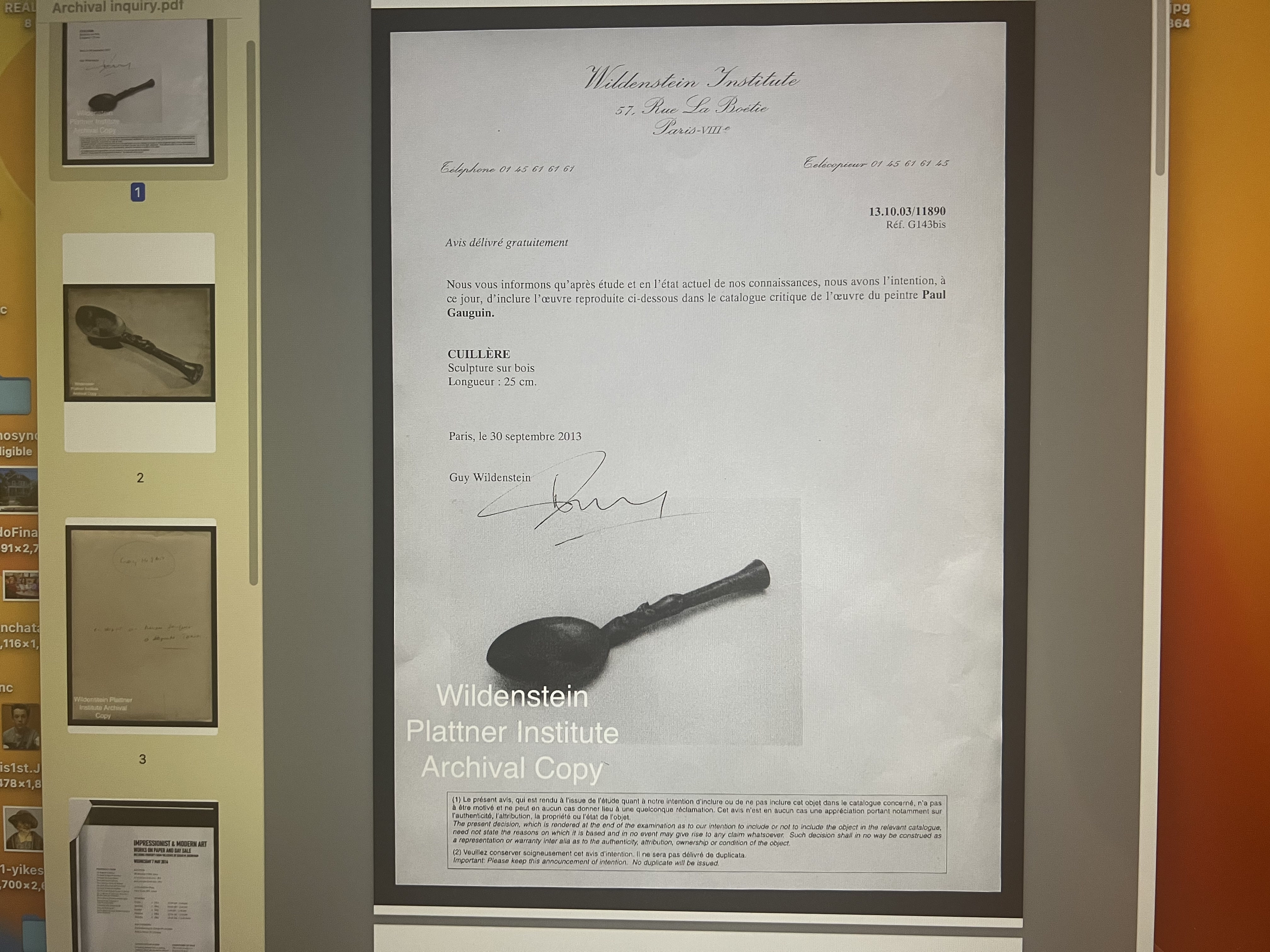


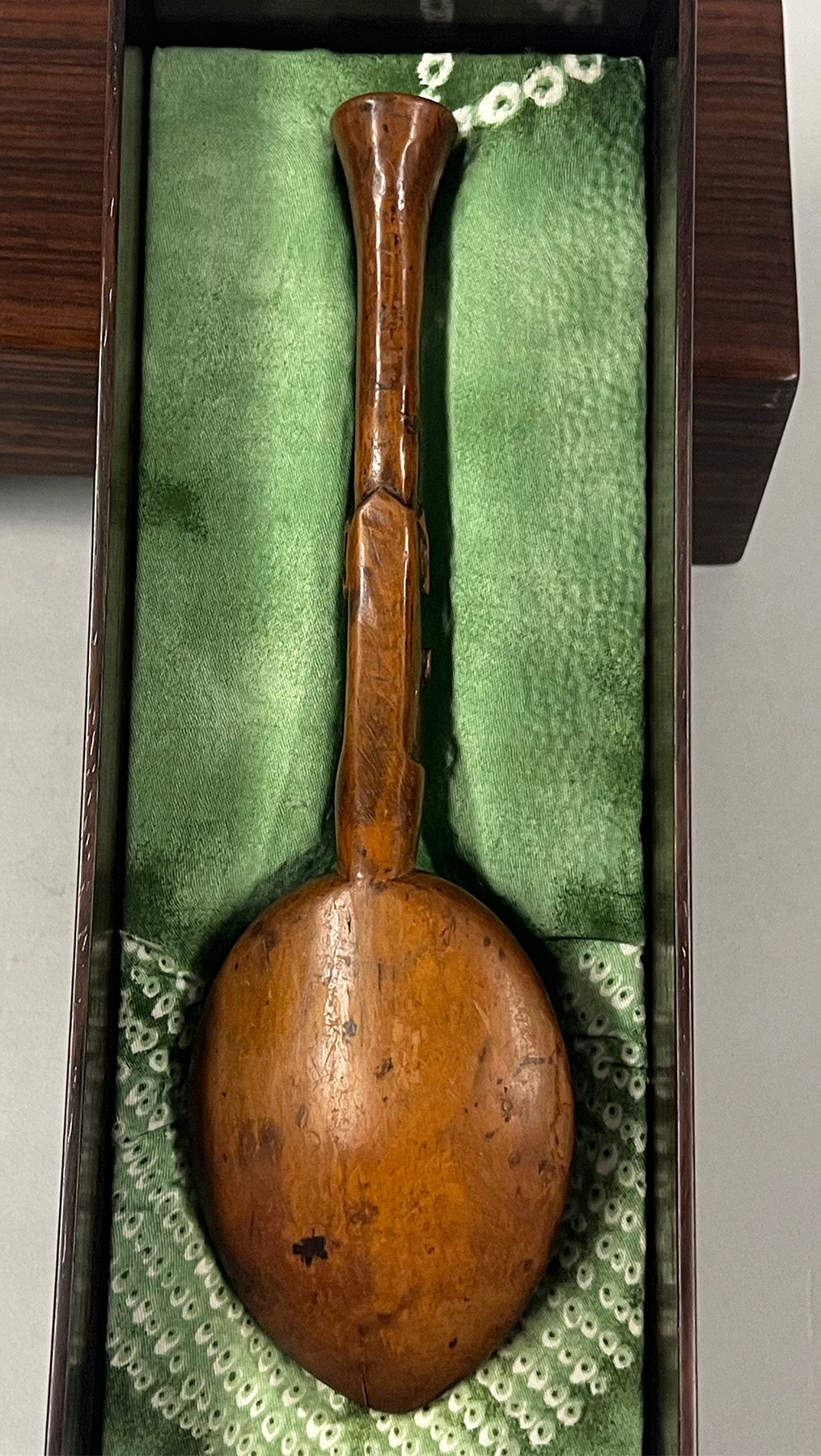
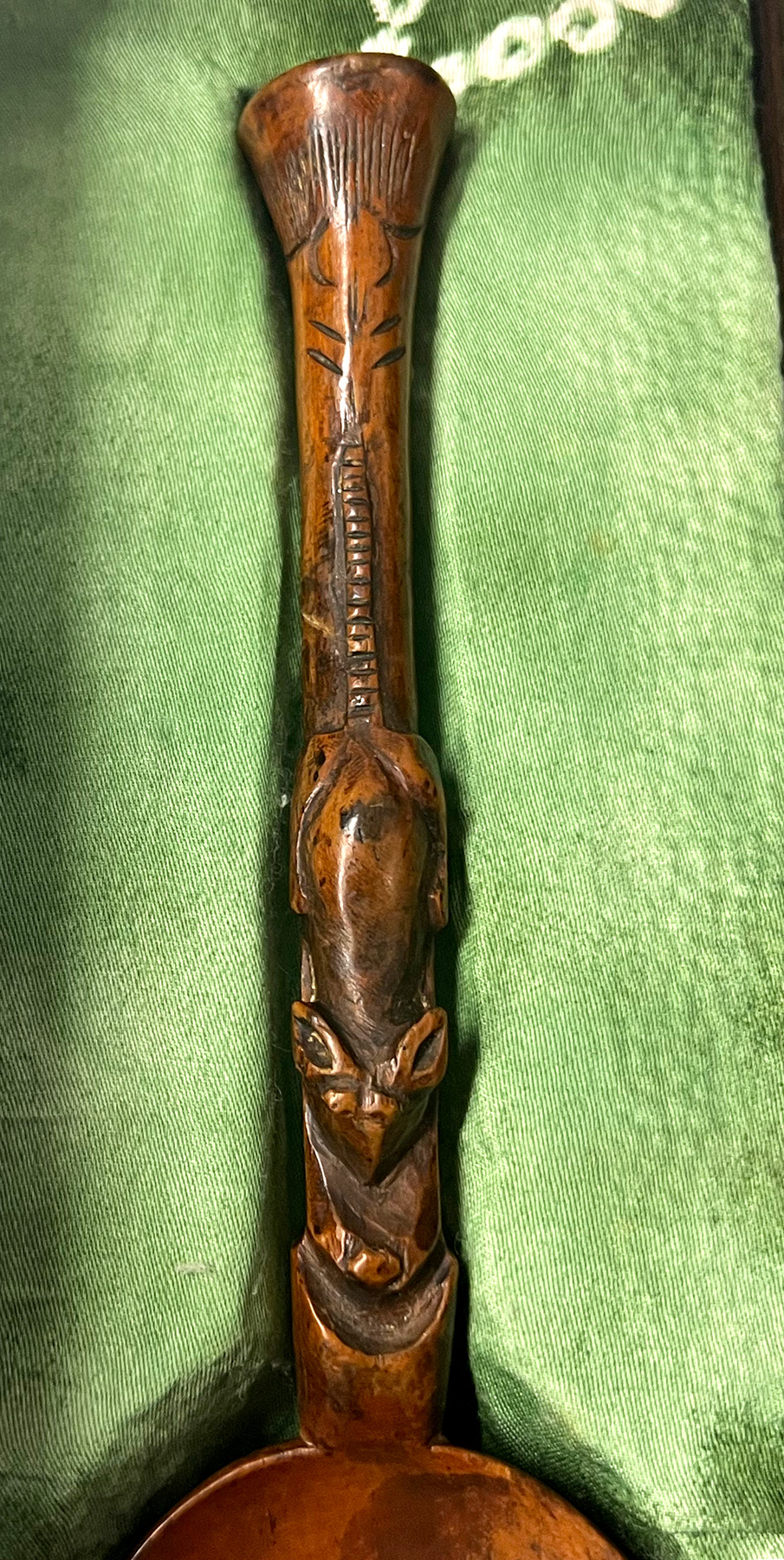
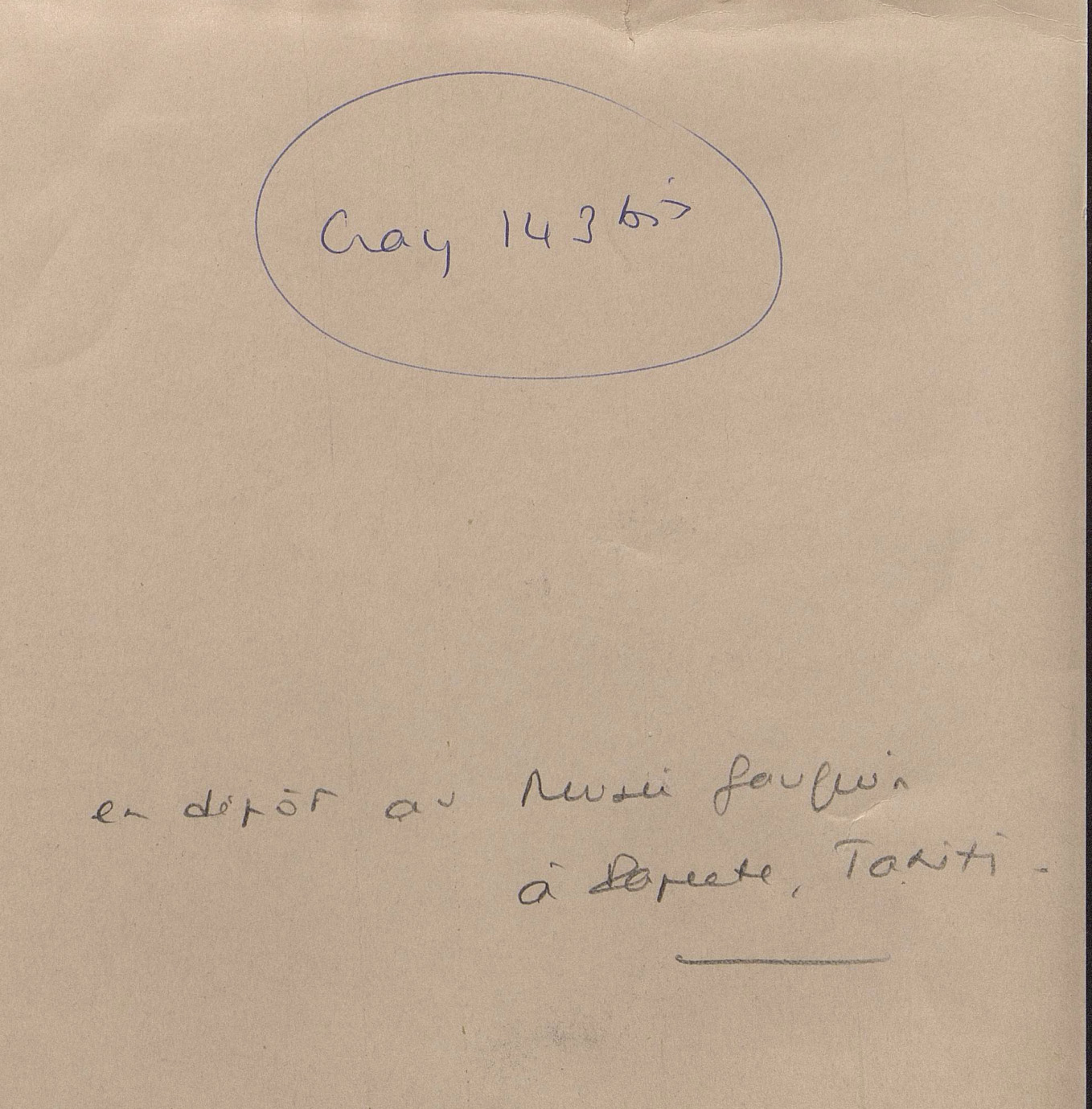
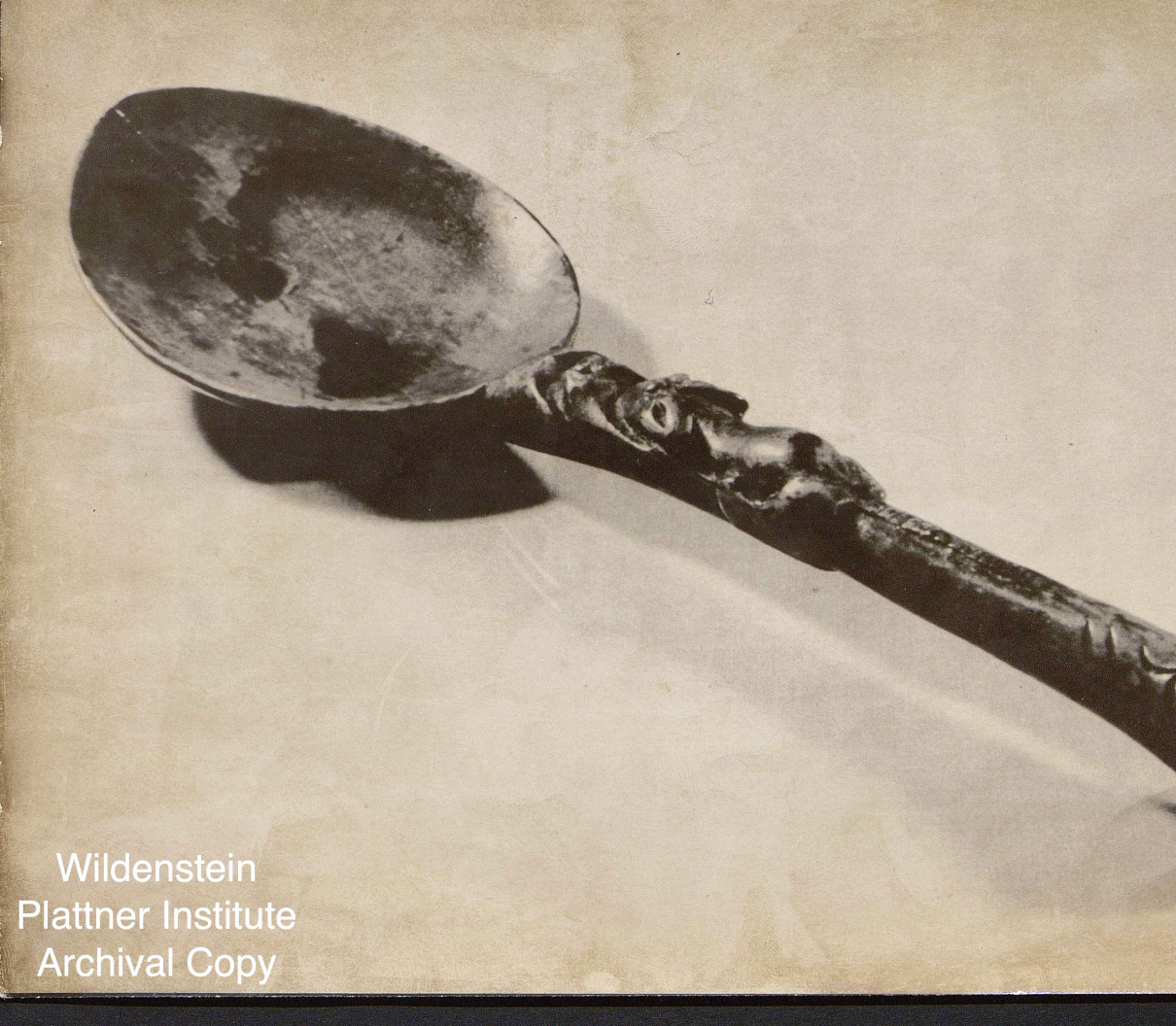
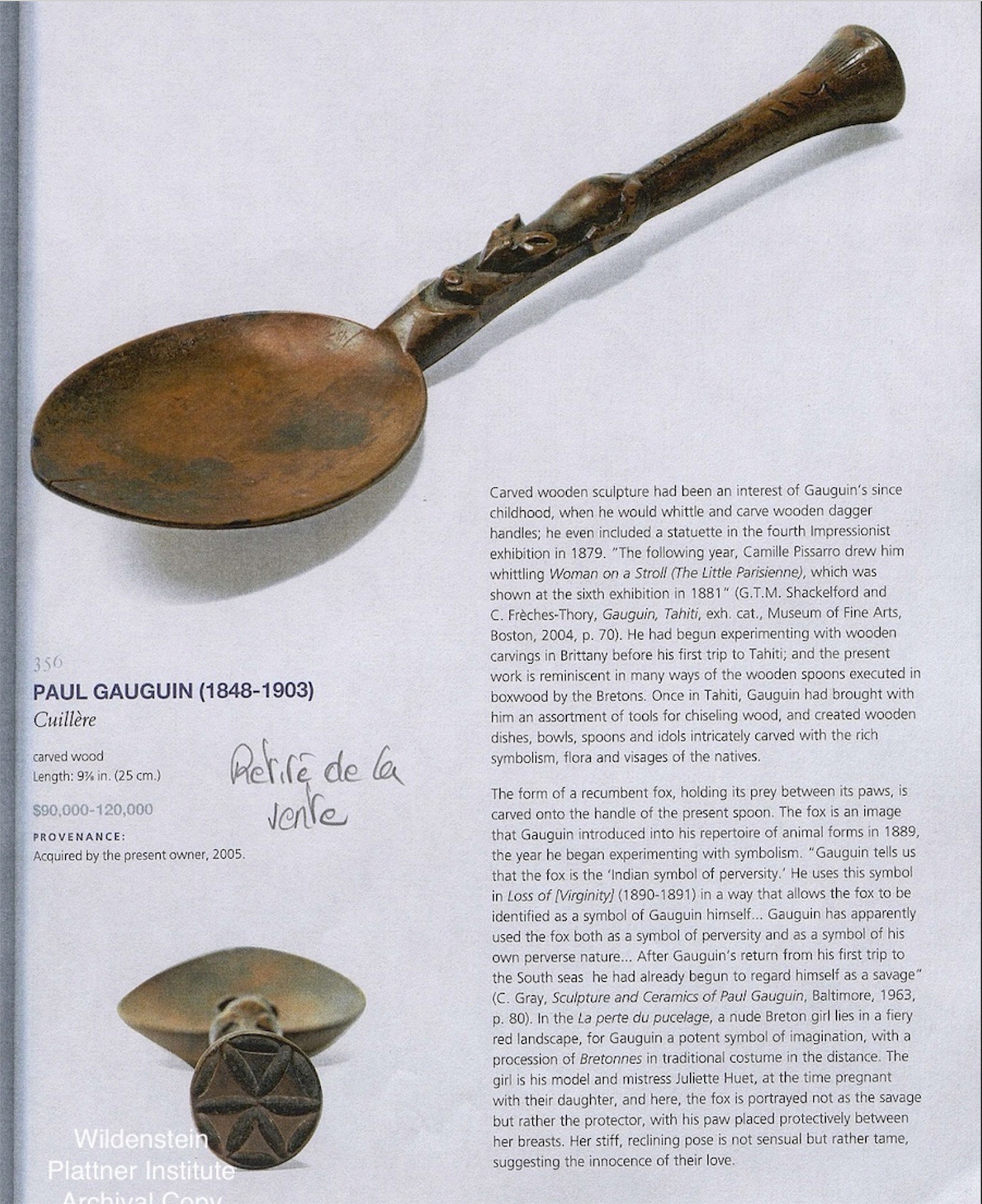
Click on image to enlarge, then click on right or left side of image to view slideshow.